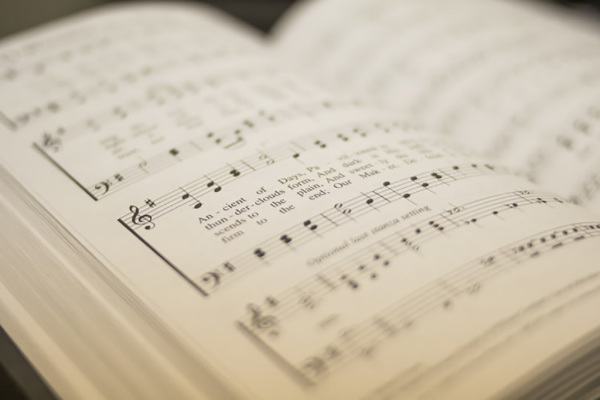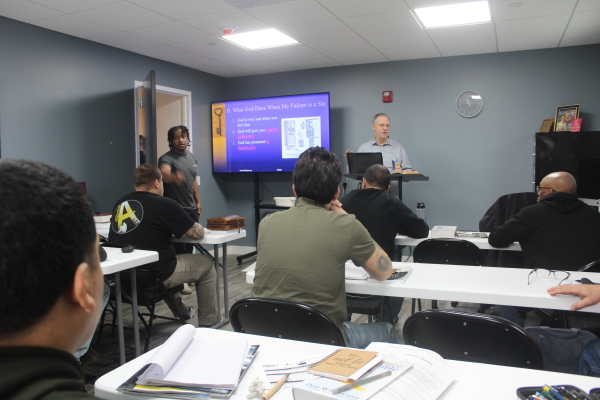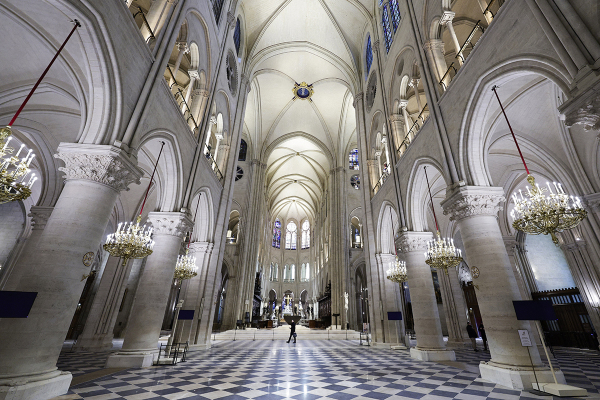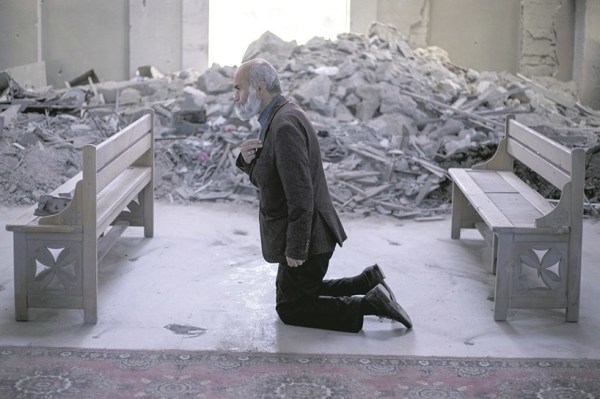Top US Catholic bishop calls 'wokeness,' social justice movement 'pseudo-religions'
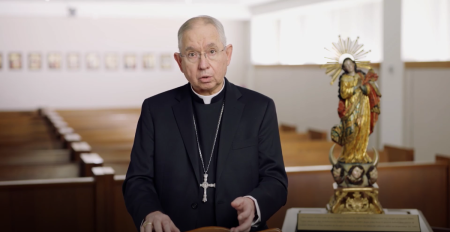
A top Catholic bishop is slamming “wokeness” and social justice movements as “pseudo-religions” that directly contradict the teachings of Christianity.
Archbishop Jose Gomez, president of the U.S. Conference of Catholic Bishops, addressed the Congress of Catholics and Public Life in a video message Thursday.
The Congress of Catholics and Public Life is an annual event spearheaded by the Catholic Association of Propagandists, a Spanish group, and the San Pablo CEU Foundation in Madrid, Spain.
The annual gathering is designed to “provide a forum for people to meet and reflect on how to adapt society to humankind and all its dimensions” and “promote participation in the public forum, so that faith is not relegated to the private sphere only.”
Gomez opened his remarks, which were delivered a week before the 2021 conference, saying that he was asked to talk about “the rise of new secular ideologies and movements for social change in the United States and the implications for the Church.”
Gomez characterized the new social justice movements sweeping the United States and western civilization as “pseudo-religions, and even replacements and rivals to traditional Christian beliefs.”
He said those new movements include “wokeness,” “identity politics,” “intersectionality” and “successor ideology.”
He warned that, like Christianity, these ideologies “provide people with an explanation for events and conditions in the world” and “offer a sense of meaning, a purpose for living, and the feeling of belonging to a community.”
The archbishop expressed particular concern that these new movements “tell their own’ story of salvation.’” To illustrate his point, he contrasted the Christian story of salvation with that of the ascendant “pseudo-religions.”
Under the Christian story of salvation, he said that people “are created in the image of God and called to a blessed life in union with him and our neighbors.”
“Human life has a God-given’ telos,’ an intention and direction,” he stated. “Through our sin, we are alienated from God and from one another, and we live in the shadow of our own death.”
“By the mercy of God and His love for each of us, we are saved through the dying and rising of Jesus Christ,” he continued. “Jesus reconciles us to God and our neighbors, gives us the grace to be transformed in His image, and calls us to follow him in faith, loving God and our neighbor, working to build His Kingdom on earth, all in confident hope that we will have eternal life with him in the world to come.”
By contrast, the story of salvation as proclaimed in the “pseudo-religions” asserts that “we cannot know where we came from, but we are aware that we have interests in common with those who share our skin color or position in society.”
“We are also painfully aware that our group is suffering and alienated, through no fault of their own,” Gomez added of the “pseudo-religion” ideology.
The archbishop further argued that the story of salvation embraced by the “pseudo-religions” also teaches that “the cause of our unhappiness is that we are victims of oppression by other groups in society.”
“We are liberated and find redemption through our constant struggle against our oppressors, by waging a battle for political and cultural power in the name of creating a society of equity,” he remarked.
Gomez elaborated on how the “critical theories and ideologies” are “profoundly atheistic,” specifically alleging that they “deny the soul, the spiritual, transcendent dimension of human nature; or they think that it is irrelevant to human happiness.”
“They reduce what it means to be human to essentially physical qualities — the color of our skin, our sex, our notions of gender, our ethnic background, or our position in society,” he maintained.
The church leader compared the movements to “some of the heresies that we find in Church history” that “see the world as a struggle between the forces of good and the forces of evil,” “reject creation and the body” and believe that “redemption can be accomplished through our own human efforts, without God.”
According to Gomez, the leaders of these movements “seem to really believe that we can create a kind of ‘Heaven on earth,’ a perfectly just society, through our own political efforts.”
The Catholic leader argued that those movements have had the opposite effect.
“Because these movements deny the human person, no matter how well-intentioned they are, they cannot promote authentic human flourishing,” he contends. “In fact, as we are witnessing in my country, these strictly secular movements are causing new forms of social division, discrimination, intolerance, and injustice.”
Gomez attributed the rise of “pseudo-religions” to the “secularization and de-Christianization” of the U.S. and the world.
“With the breakdown of the Judeo-Christian worldview and the rise of secularism, political belief systems based on social justice or personal identity have come to fill the space that Christian belief and practice once occupied.”
The archbishop concluded his remarks by declaring that “the world does not need a new secular religion to replace Christianity.” Instead, he believes the world “needs you and me to be better witnesses.”
“We are at risk right now of sliding into a new ‘tribalism,’ a pre-Christian idea of humanity as divided into competing groups and factions,” he concluded. “We need to live and proclaim the Gospel as the true path to liberation from every slavery and injustice, spiritual and material. In our preachings and practice, and especially in our love for our neighbors, we need to bear witness to God’s beautiful vision of our common humanity — our common origin and common destiny in God.”
Gomez insisted that “we should not be intimidated by these new religions of social justice and political identity” because “the Gospel remains the most powerful force for social change that the world has ever seen.” He suggested that “the Church has been ‘antiracist’ from the beginning” because “all are included in her message of salvation.”
Gomez lamented the “deliberate effort in Europe and America to erase the Christian roots of society and to suppress any remaining Christian influences.” He cited the conference’s concern about “cancel culture” and “political correctness,” noting that “often what is being canceled and corrected are perspectives rooted in Christian beliefs — about human life and the human person, about marriage, the family, and more.”
“In your society and mine, the ‘space’ that the Church and believing Christians are permitted to occupy is shrinking,” he warned. “Church institutions and Christian-owned businesses are increasingly challenged and harassed. The same is true for Christians working in education, health care, government and other sectors. Holding Christian beliefs is said to be a threat to the freedoms, and even to the safety, of other groups in our societies.”
Ryan Foley is a reporter for The Christian Post. He can be reached at: ryan.foley@christianpost.com











